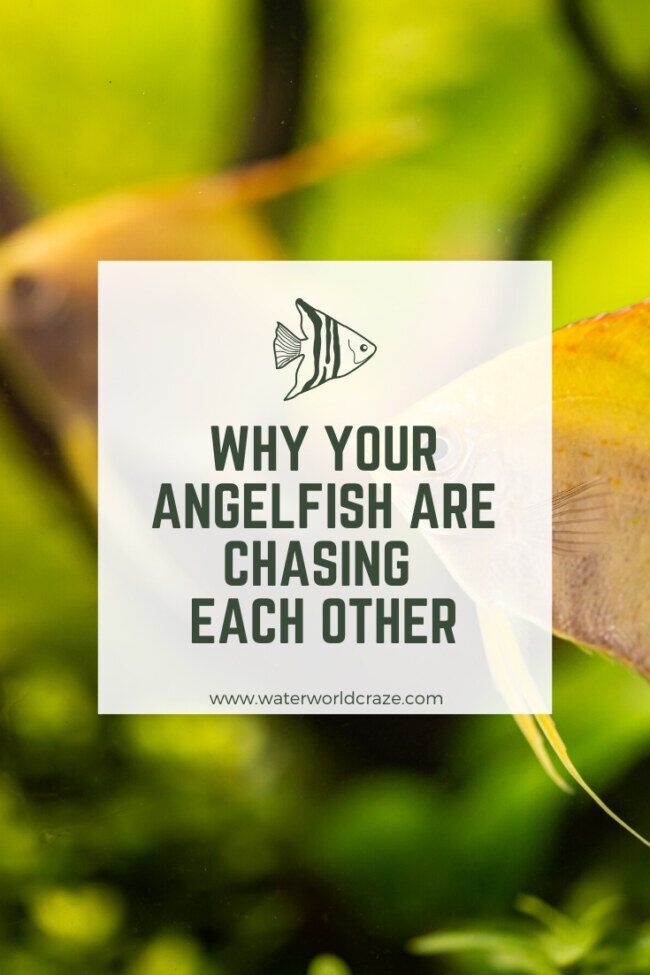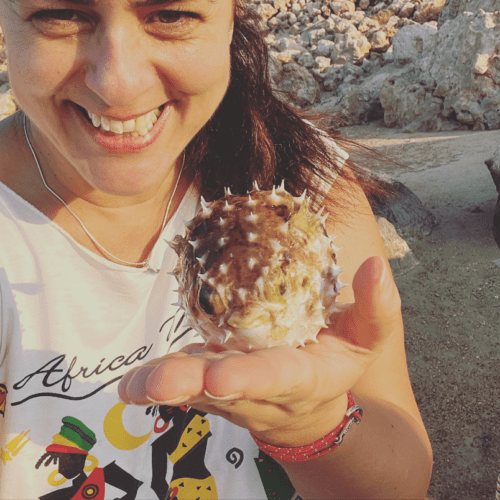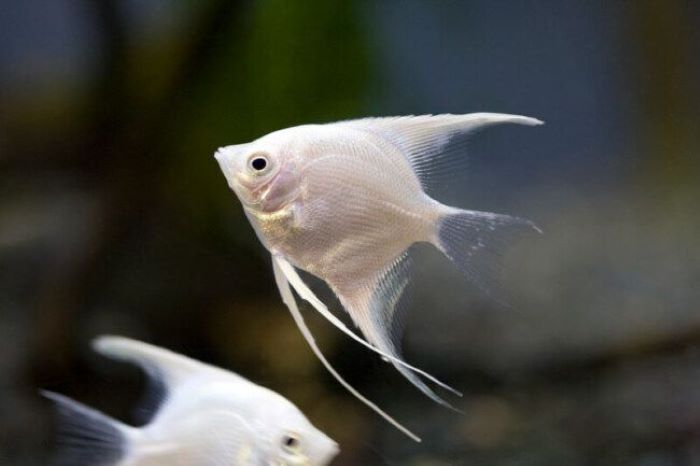 As we’ve said several times before, angelfish tend to be rather laid-back fish. However, sometimes people notice behaviors that are not characteristic of angelfish. One such behavior that you might have noticed your angelfish displaying is chasing some of its other tank mates.
As we’ve said several times before, angelfish tend to be rather laid-back fish. However, sometimes people notice behaviors that are not characteristic of angelfish. One such behavior that you might have noticed your angelfish displaying is chasing some of its other tank mates.
Angelfish usually chase each other because they’re fighting and trying to defend themselves. Some of the reasons for this include seeing the other fish as a threat, believing that the other fish will harm their young, and believing that other fish will not allow them to pass on their genes.
This is not something for you to worry too much about, and there are several things you can do to resolve the situation. In this article, we will present different reasons behind why your angelfish might be chasing each other, as well as what you can do for them.
Table of Contents
Reasons Why Angelfish Chase Each Other
Angelfish are rather territorial as far as fish go, and if you keep more than one in the same tank, you are bound to see such behavior from time to time.
If you have angelfish that are mating and have babies (fry), it is also possible for you to see them growing aggressive and displaying uncharacteristic and unusual behaviors.
Here are some of the different reasons why you might notice your angelfish chasing each other.
1. They see the other fish as a threat to their ability to mate
This is especially true if you have male angelfish. One male angelfish might chase the other away to assert his dominance.
Of course, in the animal kingdom, the male that is able to produce is seen as the dominant one of his species, or the winner, because he was able to pass on his genes.
This will also be the case if you have male fish of a similar species or that look similar to your male angelfish. It will especially be true if you have saltwater angelfish because they typically have ‘harems,’ which means one male angelfish has several female fish to mate with.
The more female angelfish the male is able to attract in his harem, the better. So, they could chase each other to assert their dominance and scare others away from trying to find mates.
2. The female angelfish are trying to protect their young
When thinking about different animals that are fiercely protective of their young, fish might not be the first ones that come to mind. But this is not the case for female angelfish.
If the female angelfish sees that other fish are approaching her fry and eggs, she will most likely chase them away. Female angelfish are the calmer of the two, so you might be surprised to see her displaying such aggressive behavior.
They display such a high level of care for their young because this is the way the female will be able to pass on their genes; the more babies she has, the more fish she will have as her descendants. As you can see, it seems to be a game of ‘survival of the fittest’ here.
In this regard, we recommend reading our following articles:
3. There are too many fish in one tank
You can, certainly, keep more than one angelfish in the tank. But it will become a problem if the tank is too small or overcrowded. You should have at least a 20-gallon tank for a pair of angelfish.
As we said before, angelfish are territorial fish and you need to make sure that they have enough room to have their own private space in the tank you choose.
They should not feel threatened by the other fish and they should be able to establish their own ‘territory.’ If you want to avoid aggression altogether, it is recommended that you keep one male angelfish and one female angelfish in the same tank.
But if you have lots of different fish, including fish of different species, this might cause the angelfish to feel overwhelmed or threatened that the other fish is trying to take over their space.
Again, angelfish usually chase each other for reasons that pertain to them feeling threatened because another fish is trying to take over their territory.
This display of aggression might not be so useful to you in your tank at home where you only have a few fish, but when angelfish are living in the wild, they need to be able to defend themselves as much as possible in order to survive among the thousands of other fish.
So, much of this behavior is mostly instinctual.
Other reasons that would cause aggression among your fish might include issues with the pH, the food you’re giving them, or other things related to the logistics of your tank.
Now, let’s discuss some of the things you can do to help prevent your fish from chasing each other as much as possible.
How to Stop Your Angelfish From Chasing Each Other
You now know the reasons why your angelfish are likely chasing one another; here are some of the things that you can try to do in order to resolve the situation.
See if there’s anything wrong with the tank itself
This includes the size, pH levels, quality of food, and more. If you notice that the pH levels are off, this could affect the behavior of any fish, not just the angelfish. Be sure to check for these things regularly to make sure that your fish remain happy and healthy.
It is also important to take notice of the size of the tank. If it’s too small, then your fish will certainly begin to display aggressive behaviors.
You should at least be looking to get a 30-gallon tank, depending on how many fish you intend on keeping. (We show you the right tank size and tank shape in this article!)
Which leads us to our next point.
Try decreasing the number of fish you keep in one tank
Again, there’s nothing wrong with wanting to have more than one angelfish in the same tank. But this can sometimes be cause for such aggressive behavior.
It is typically recommended that you keep one male and one female in the same tank to avoid almost any type of aggression, but it is possible to keep more.
But if you’re keeping 20 angelfish in a small tank, then it’s worth considering getting a separate tank and keeping some of the fish in there.
Related Questions
Can angelfish kill each other?
Angelfish are rather peaceful for fish and the chances of them killing each other are extremely low. It is possible that you will notice your angelfish being aggressive toward each other at certain times, but usually, they will all leave each other alone.
Will angelfish attack other fish?
It entirely depends on the individual fish, but it is important to keep in mind that male angelfish are more aggressive toward the female fish. So you might see them nipping or chasing the other fish in the tank, but they will not typically do anything more than that.
Can angelfish eat other fish?
This isn’t something that is very common, although it’s possible once your angelfish have reached a certain size. It is possible for them to eat smaller fish or even their own eggs if they feel like it. This doesn’t mean that you should be worried about your other fish, but it is something to keep in mind.

Marta, the driving force behind WaterWorldCraze.com, holds a Master’s degree in Marine Biology and has extensive experience in water sports and activities. With over 7+ years of hands-on experience in marine research and conservation, she has participated in numerous underwater expeditions and projects. Her passion for the aquatic world shines through in her expertly curated content. Join Marta as she explores the wonders of marine life and shares her adventures. Connect with her on Instagram @marinebiologymarta for more insights and updates.

